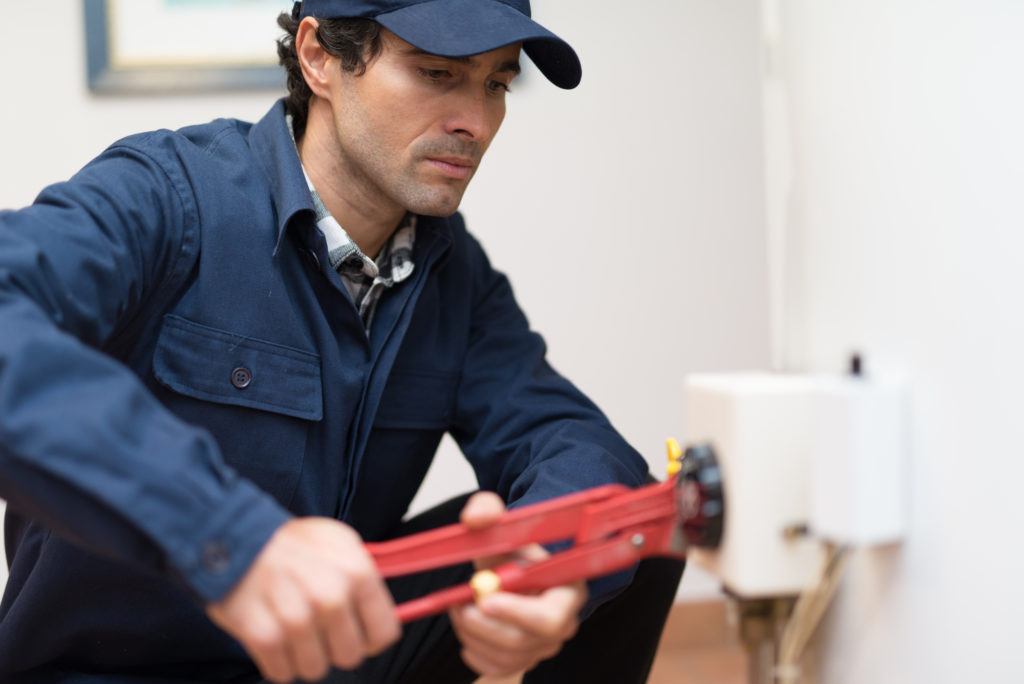Managing Water Heater Problems: A Comprehensive Guide To Usual Standard Issues
Managing Water Heater Problems: A Comprehensive Guide To Usual Standard Issues
Blog Article
This post which follows relating to Water Heaters Problems is incredibly engaging. Don't bypass it.

Envision beginning your day without your regular hot shower. That already sets a bad tone for the remainder of your day.
Every residence requires a reputable hot water heater, yet just a couple of recognize exactly how to handle one. One simple way to keep your hot water heater in leading shape is to check for mistakes consistently and also fix them as quickly as they show up.
Remember to switch off your hot water heater before smelling around for faults. These are the hot water heater mistakes you are probably to experience.
Water too warm or too cool
Every hot water heater has a thermostat that figures out how warm the water obtains. If the water entering into your home is also warm despite setting a hassle-free maximum temperature level, your thermostat might be faulty.
On the other hand, also cold water might result from a stopped working thermostat, a broken circuit, or inappropriate gas circulation. For instance, if you make use of a gas water heater with a busted pilot light, you would certainly get cold water, even if the thermostat is in best condition. For electrical heating units, a blown fuse might be the offender.
Inadequate warm water
Hot water heater been available in numerous dimensions, depending upon your warm water needs. If you run out of warm water prior to everybody has had a bath, your hot water heater is as well small for your family size. You need to take into consideration setting up a larger hot water heater tank or going with a tankless hot water heater, which takes up much less room as well as is extra long lasting.
Strange noises
There go to least 5 kinds of noises you can learn through a water heater, however the most typical analysis is that it's time for the water heater to retire.
Firstly, you should recognize with the regular appears a water heater makes. An electric heating system might sound different from a gas-powered one.
Popping or banging noises normally mean there is a piece of sediment in your tanks, as well as it's time to cleanse it out. On the other hand, whistling or hissing noises may just be your shutoffs allowing some stress off.
Water leaks
Leakages could come from pipes, water connections, valves, or in the worst-case scenario, the storage tank itself. With time, water will certainly wear away the tank, and find its way out. If this occurs, you need to replace your hot water heater as soon as possible.
However, before your adjustment your entire container, make sure that all pipes remain in area and that each valve functions flawlessly. If you still require help determining a leakage, call your plumber.
Rust-colored water
Rust-colored water means among your water heater elements is corroded. Maybe the anode rod, or the container itself. Your plumber will certainly have the ability to determine which it is.
Lukewarm water
Regardless of how high you established the thermostat, you won't obtain any type of hot water out of a heater well past its prime. A hot water heater's effectiveness may lower with time.
You will additionally obtain lukewarm water if your pipelines have a cross link. This implies that when you turn on a tap, warm water from the heater flows in together with normal, cold water. A cross connection is simple to spot. If your hot water taps still follow shutting the water heater valves, you have a cross connection.
Discoloured Water
Rust is a significant cause of filthy or discoloured water. Deterioration within the water container or a failing anode rod might cause this discolouration. The anode pole protects the container from rusting on the within and need to be examined yearly. Without a pole or a properly operating anode pole, the warm water swiftly corrodes inside the storage tank. Contact an expert hot water heater service technician to establish if replacing the anode rod will certainly fix the issue; otherwise, replace your water heater.
Conclusion
Ideally, your water heater can last ten years prior to you need a change. Nevertheless, after the 10-year mark, you may experience any one of these mistakes more regularly. At this moment, you should include a new hot water heater to your budget plan.
How To Troubleshoot 3 Common Water Heater Problems in Twin Cities
The Water Heater Is Leaking
A leaky cold water inlet valve A loose pipe fitting A leaky temperature and pressure relief valve A corroded anode rod A cracked tank Turn Off Your Water Heater:
Shut off your gas water heater by turning the gas valve on the unit to the “OFF” position. Shut off your electric water by switching its power off at your electrical panel. Look for a two-pole breaker labeled “water heater” and turn it to the “OFF” position. Move the ball valve connected to the water heater to be perpendicular to the piping at a 90° angle. Look for the Leak:
Depending on whether the water is coming from the tank's top or bottom, you’ll want to look for the leak in different locations.
If the leak comes from the top of the tank, carefully look for water escaping from the cold water inlet valve or loose pipe fittings. Rusted hot and cold water valves can have loose connections with the tank, with water leaking out of them.
https://mspplumbingheatingair.com/blog/how-to-troubleshoot-3-common-water-heater-problems
I hope you liked our piece on Water Heater Repair and Troubleshooting. Thanks for taking the time to read through our blog post. Are you aware of anybody else who is sincerely interested in the subject? Please feel free to share it. Thanks so much for taking the time to read it.
Emergency plumber? One call away. Report this page